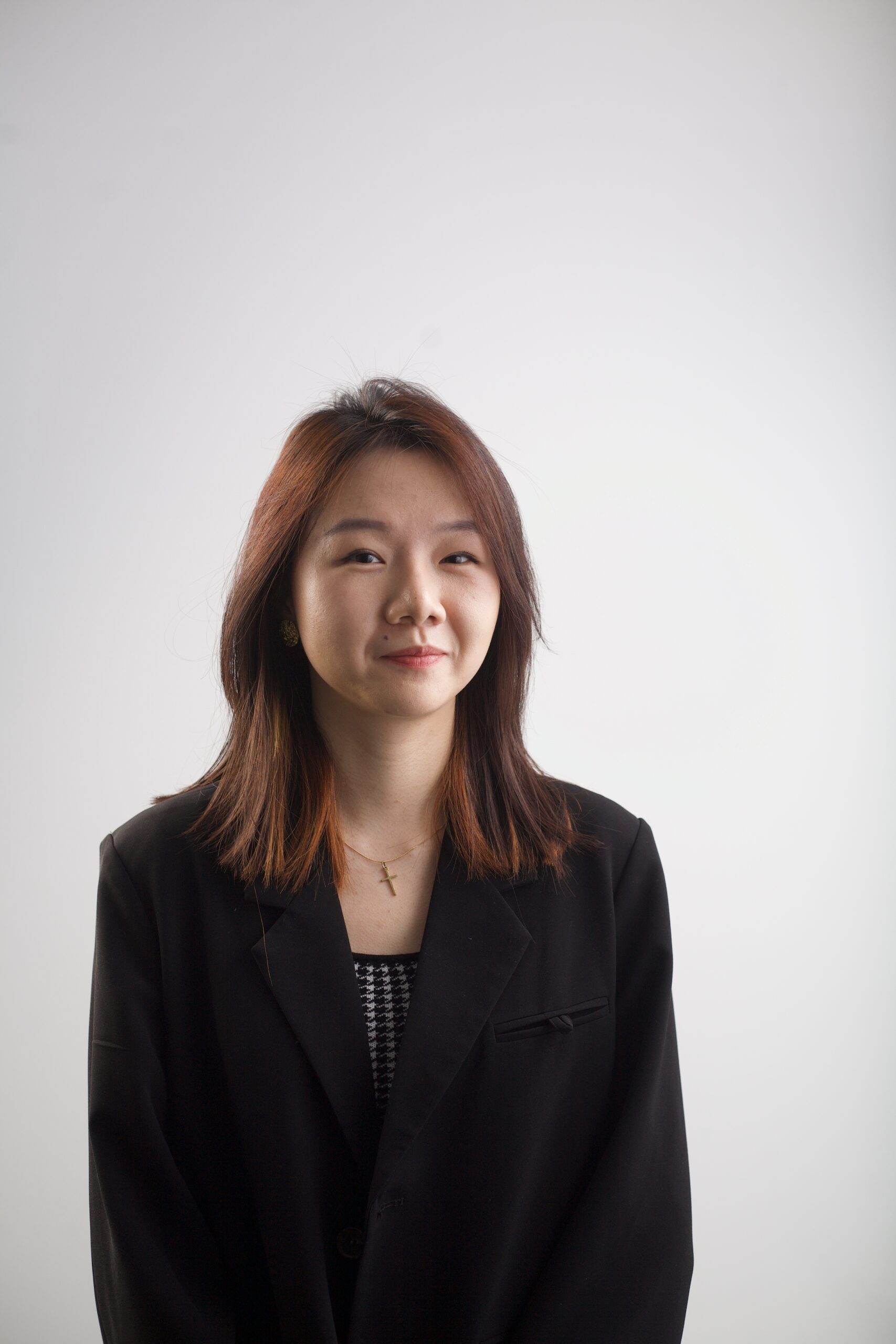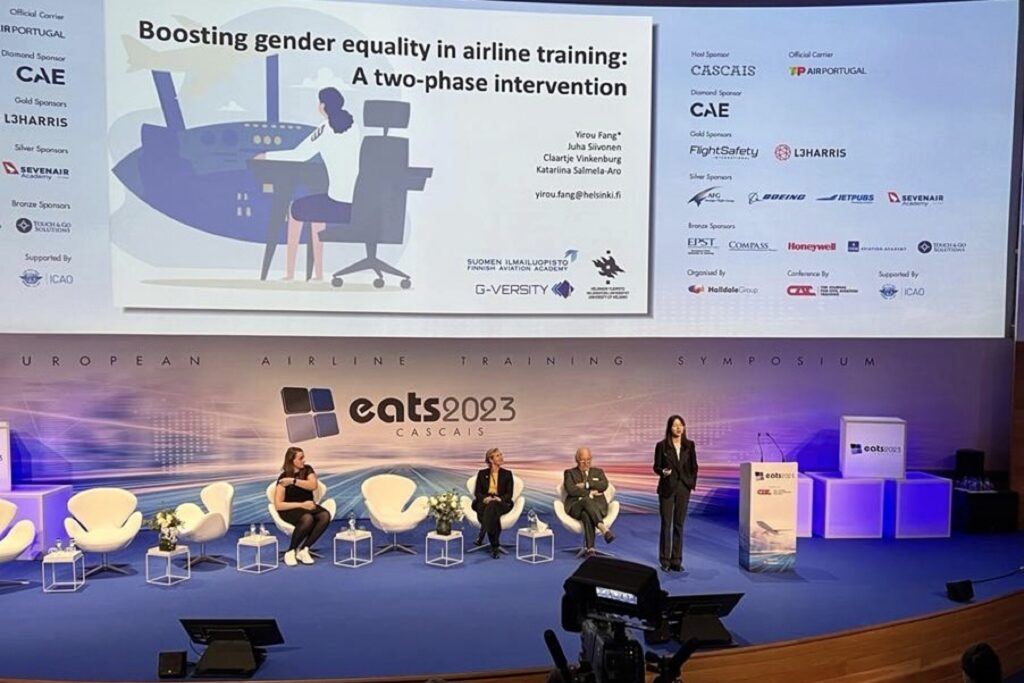Photo of Yirou Fang at the EATS 2023
Participating in the European Airline Training Symposium (EATS: Pilot Conference – EATS – European Airline Training Symposium (eats-event.com)) as a developmental psychologist was an interesting experience—a two-world-collide moment—for me. Science dissemination and impact, you might say, but there was more to that.
I was there to speak about my joint project with the Finnish Aviation Academy on boosting gender equality in the pilot school. It was a two-phase intervention centered around comprehending and breaking current stereotypes, especially gender stereotypes, surrounding pilot occupation. The main aim of the intervention was to increase the number of women applying for pilot education, and this intervention was rather successful. Yet, in this piece, I will not talk too much about the actual project, and instead, let’s discuss what’s behind the lack of women in aviation.
Like in academic conferences, I met, got to know, and exchanged ideas with a variety of people at EATS. Yet, the captains, the heads of cabin crew training, and the CEOs of high-tech companies were not necessarily familiar with academic debates in psychology or gender studies, which made the conversations worthy of sharing here. Over the coffee tables, I was repeatedly asked, “so, what is your mission here, coming from the University?” After explaining that I was there for a panel on inclusion in aviation and that my project aimed to recruit more women into pilot education, I would receive an amazingly homogeneous response:
“In my opinion, pilot occupation is not just for men, it is for women too.”
“I don’t think this is a man’s job. A woman can become a pilot, just like a man does.”
“We are all equals as pilots.”
“It is as simple as that.”
These were the responses I got from men. From women and gender minorities, I got nodding and somber faces. For a flimsy moment, power was right in front of me, in solid form.
The process of going through pilot training and being a pilot may not be as gendered, but no one works in a vacuum, and there’s life outside of work. Your partner and offsprings don’t just disappear when you are away and working, and this is inseparable from the ill-being of pilots. As in all other occupations, pilots suffer from institutionalized illness associated with the occupation: chronic fatigue, physical ill-being as a result of long working hours, and bad rhythm from shift work. These are illnesses directly associated with job contents of a pilot. If we stretch these symptoms to home life, it is simply “not being there.” And in the context of a pilot, the now-individualized task of dealing with organization-subscribed hardships is gendered in such a way that it is easier and more natural for men to handle: a complex interplay of gender norms, power, and the neo-liberal move of recoding politics as ethics, institutional as individual.
It is not as simple as that, for women.
Here is an example from one of the captains I’ve spoken with during EATS. She had two children and was flying wide bodies on multi-day trips. She had to tell her spouse that she’s going to fly to the East Coast of the States to acclimate for a day and then to South Africa, and it’s going to be a seven-day trip, leaving her kids, parent-teacher meeting, kid’s dentist appointment, and her daughter’s best friend’s birthday party to her spouse. During the trip, the inbound had a machinal, the seven-day trip turned into an eleven-day trip. She had to make a very difficult phone call. It was difficult, but it was the reality. This is an epitome of the current faulty system, where the wage is tied to flying hours. With different roles expected of men and women, the individualized duty of “work-life balance” becomes a much bigger obstacle for women.
We’ve given this women’s situation many names, the unpaid work, the second shift, et cetera, and if we zoom out, it is a consequence of the long-lost responsibility of organizations. Efforts were made to improve recruitment, promotion, and retention of women within the field of aviation, yet, airlines and aviation academies are reluctant to shift their focus back to the nature of pilot and to proceed with building a systemic support system that’s tailored around the specific job contents of a pilot: the long hours, the unpredictability, and the “away from family.” This might sound like extra work and length cooperates need to go to attend to a certain group. However, in reality, the ill-being exists precisely because of the contemporary work form that is performance-oriented.
The ill-being shows different forms in different groups and has different impacts on different groups. Is it that the groups differ in their abilities? Not really. Oftentimes, the differences derive from existing societal norms and thus, are institutional, not individual. It is as simple as that.

Being well prepared — A gender-related career setback training (Finland)
